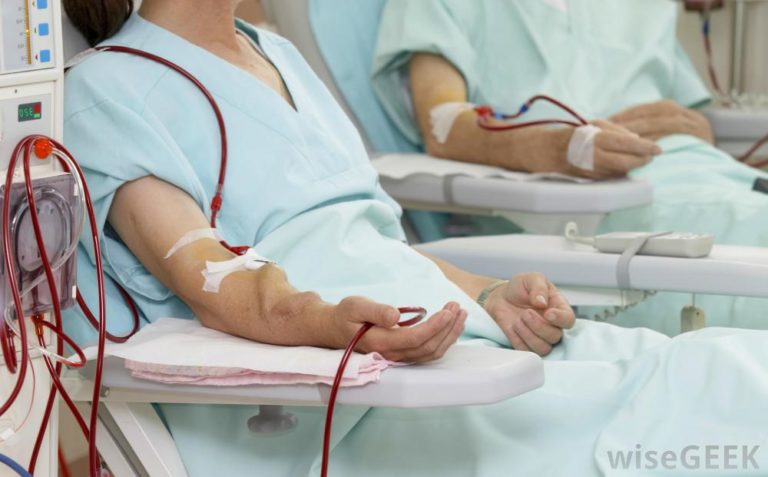Kidneys play a crucial role in purifying the bloodstream from toxins and other harmful components. Kidney health is said to be very delicate and if not looked after with proper care, a human can experience Chronic Kidney Disease (CKD). This in return can lead to Kidney dialysis.
Kidney dialysis is the phenomenon used for the proper functioning of the kidneys when one’s kidney stops working properly. Dialysis is performed with the help of a machine where it purifies and filters the blood into the bloodstream.
When a patient’s kidneys stop functioning properly, it becomes necessary to regularly purify the blood else it can lead to serious health implications and even death. Dialysis helps in keeping the body balanced even when the kidneys aren’t working properly.
Why is it used?
Kidneys are known for preventing impurities, waste and extra water from accumulating inside a human body. Kidneys are not also associated with cleansing but they also play a crucial role in controlling the blood pressure. And helps in keeping a perfect chemical, mineral and nutrients balance in the blood.
So, when the kidneys stop performing all these functionalities due to an injury or a disease like a kidney stone or other chronic diseases, the body stops working in a normal manner.
Dialysis helps in keeping all the bodily functions intact. Dialysis is recommended because when the kidney health is compromised, the patient’s blood will get poisoned with all the waste products and salts. Dialysis will make sure that the blood is getting purified on a regular basis.
But, one thing to keep in mind is that Kidney dialysis is not a cure for any of the kidney diseases, it is just a medium to keep one’s body working properly. It is a temporary treatment. There are different treatments for different types of kidney diseases.
How does it work?
Dialysis uses external sources like a machine to keep the body free of impurities. It is done artificially and depending on the type of dialysis required, it is categorized into two different types.
Hemodialysis:
It is the most common amongst dialysis patients. In hemodialysis, the doctors fix an artificial kidney called hemodialyzer to the patient’s body. The artificial kidney works similar to that of the natural human kidneys.
The doctors will create a vascular access by performing a surgery. The vascular access or an entry point is made for the blood to get through the artificial kidney into the blood vessels.
The entrance point is made surgically in a way that it easily allows access to a large amount of blood to flow inside the body.
There are two types of access points created by the doctors. Depending on the patient’s need and condition, the doctor will either create an arteriovenous (AV) graft or an arteriovenous fistula.
AV fistula is done by connecting the vein and artery whereas; AV graft is done by installing a looped tube. On the other hand, in case if the patient requires hemodialysis for short term, then the doctors will use a catheter. It is inserted via the neck into the large vein of the patient’s body.
Hemodialysis treatment can take up to 4-6 hours depending on the patient’s condition.
Peritoneal Dialysis:
In Peritoneal Dialysis, the doctors surgically implant catheter inside the patient’s abdominal region. In this type of dialysis, the patient requires an external fluid to keep the blood purified. The dialysate is the fluid used to drain the waste out of the bloodstream.
The waste is collected in the belly and dialysate makes sure that it is released from the body.
There are two main types of peritoneal dialysis performed by the doctors namely – continuous cycler-assisted peritoneal dialysis and continuous ambulatory peritoneal dialysis.
Continuous cycler-assisted peritoneal dialysis is performed during the nights when the patient is asleep and uses a machine.
Continuous ambulatory peritoneal dialysis fills and drains the belly multiple times a day. The best thing about peritoneal dialysis is that the patients can perform it all by themselves at their homes; the doctors will train them on how to operate.
Risks Associated with it:
- Weight gain
- High blood sugar
- Abdominal muscle weakening
- Difficulty in sleeping
- Low blood pressure
- Itching
- Depression
Summing Up:
This was a brief of all you need to know about kidney dialysis . If you still have any queries for us, then they are humbly welcomed.

